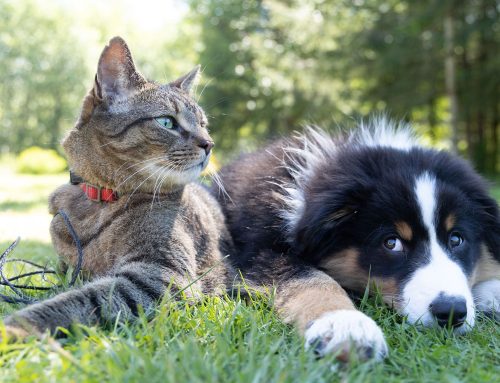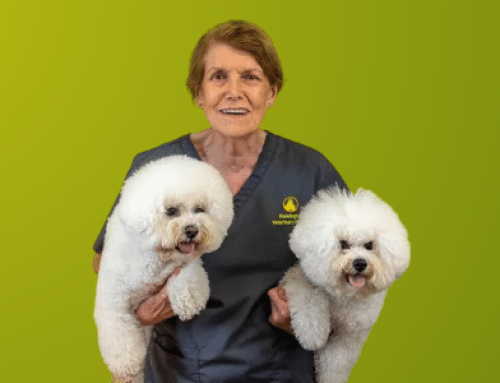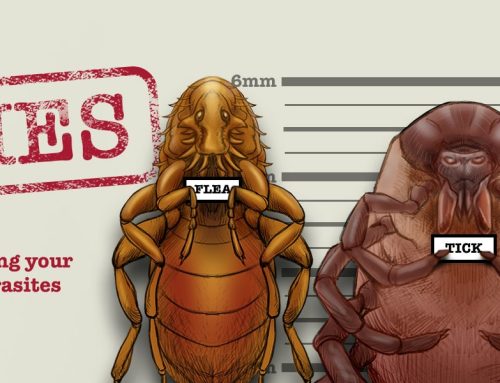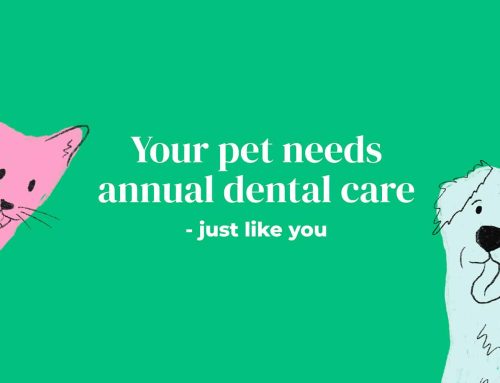When it comes to dental disease, prevention is better than a cure!
Dental disease is one of the leading causes of animal health problems and they can be very easily overlooked by many pet owners. The consequences of poor oral hygiene include severe and constant pain associated with gingivitis and tooth damage, tooth loss and oral infections.
There are many things a pet owner can do to maintain good oral hygiene at home. Firstly, we recommend that your pet has a dental assessment by one of our vets to determine the level of dental care needed. Some cats and dogs may already have a level of dental disease that is beyond home management and require veterinary intervention (https://www.flemingtonvet.com.au/vet-services/dentistry/)
The following tips are most effective when performed as a preventative measure. Pre-existing plaque and tartar is unlikely to respond to the following measures and a comprehensive dental clean and assessment is recommended.
Brush teeth:
- Brushing the teeth is considered the gold standard for maintaining good dental health.
- It is recommended to do this at least three times a week for it to be effective (any less and plaque/tartar is likely to build up faster than it is removed). Brush more frequently if possible.
- Use a toothpaste made for animals (human toothpaste is not appropriate)
- Toothbrush – thimble-type baby’s toothbrushes are appropriate for small pets and soft-bristled children’s toothbrushes can be used on larger pets.
- For pets that are unaccustomed to having their teeth brushed – training exercises which involve progressively touching the face, lifting the lips, and touching the gum and finally using a toothbrush to gently rub the teeth. This may take weeks to months before you pet may be used to this to allow you to brush the teeth. Patience and persistence is the key! Give your pet lots of treats during their training.
- Only the outer cheek-side surfaces of the teeth need brushing (not the inner tongue side)
Dental diets:
In most cases, feeding a predominantly dry food diet can significantly reduce plaque build-up. We see a high number of pets on wet food only diets present to us with more advance dental disease much earlier in life that we would expect.
Dental diets such as Hills T/D or Royal Canin dental diet are completely balanced diets which are specifically formulated to clean your pet’s teeth while they eat.
Dental chews:
- For dogs, choose a dental chew for your pet that will provide prolonged chewing time. Every dog will have their own specific needs. Just avoid chews that are too soft which provide limited chewing time. Prozym sticks, Whimzees, OraVet chews, Greenies and even kanagaroo tendons are great products to try. As a general rule, aim for a minimum of 15 minutes of chewing time per week (accumulated time throughout the week).
- For cats, we can be limited to what your cat is willing to eat. Greenies for cats are dental treats that come in various flavours for your cat to enjoy.
- We do not recommend feeding bones as they are a very common cause for fractured/broken teeth and life-threatening gastrointestinal blockages. If you do prefer to feed bones to your pet, make sure they are not cooked and feed at your own risk.
Mouth rinses or water additives:
These types of products are by no means as effective as brushing the teeth. We stock a product called TEEF – this is a probiotic additive that reduces the growth of plaque-forming bacteria in the mouth. Hexarinse is a mouth wash that can be used 2-3 times a week that has an anti-bacterial ingredient to reduce bacteria in the mouth.
When choosing a dental product, look for the VOHC seal of approval – this is the Veterinary Oral Health Council that will assess and endorse products that have been proven to be effective in managing dental hygiene.
We understand that not all of the above tips will work for every pet. For example, brachycephalic breeds (such as Pugs, Bulldogs, Persian cats) have much more crowded teeth and require different management to other breeds. Some dogs will not chew on anything, and some cats refuse to allow their human to handle their face. If in doubt, get in touch with us on (03) 9372 7655 to see how we can help.






